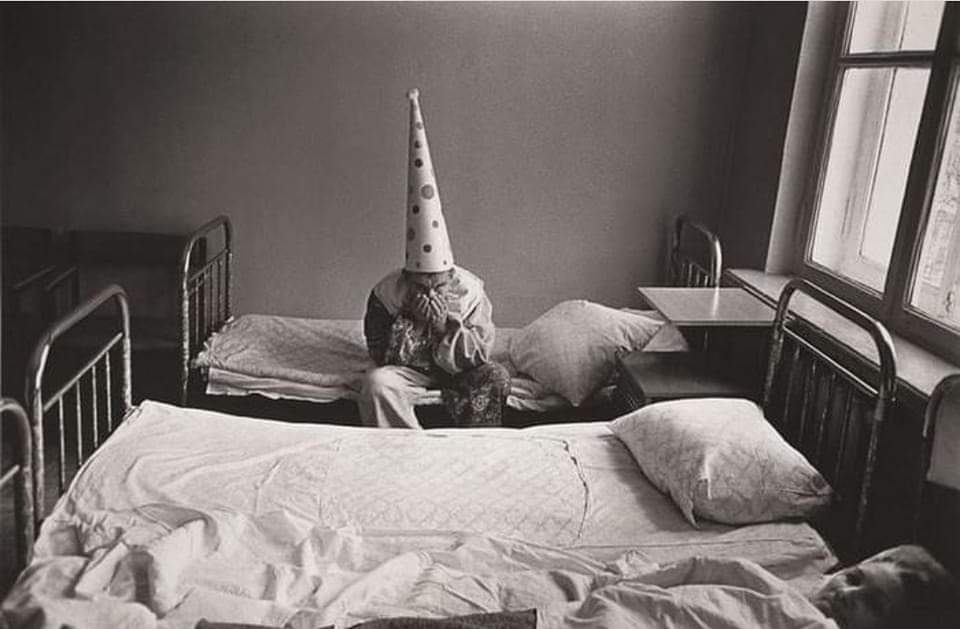
At what point was it decided that listlessness and sadness are symptoms of an individual illness? At what point do we accept that rejecting the exhausting rhythms of work, being tired of working for an employer’s profit, hating the life of counting coins and counting days until the payment date is a personal problem? Who says that mental health pain is just a personal or individual issue and not a product of social relationships under this system? Who decides that being in a bad mood most days in a system that oppresses, exploits and kills is just a hormonal, existential, neurological imbalance?
Of course we carry our physiology, our neuronal structures and our personal and family history.
Some neurobiologists and neuropsychologists attribute depression to low levels of serotonin. But they omit a series of issues. First, the serotonin present in the brain cannot be measured. Second, serotonin in the blood is not a sufficient indicator of its level in the brain, because the blood-brain barrier does not allow the passage of serotonin. Third, it is not exhaustively and scientifically proven that selective serotonin reuptake inhibitors, such as fluoxetine or sertraline, have the promised effect. Even so, the sale of antidepressants increased by 13% in 2021. Fourth, and not least, the neurological explanation does not allow us to understand why cases of depression increased by 25% in 2008 and 20% in 2020, years of economic crisis and pandemic. . There are those who claim that serotonin decreases due to stress and poor diet, but this is not proven and does not explain all cases. Fifth, when all psychotropic drugs fail, hospitalization is forced as a resource that most of the time lasts too long and has very limited benefits.
But it is insufficient to attribute depression exclusively to these factors. Because interpreting things reduced in this way is at the service of depoliticizing a social problem: if the symptom belongs to a person then the production system has nothing to do with it; It seems that this is not about transforming the world, but about getting going and getting excited about life. But does anyone really suppose that depression, which affects millions of people at the same time, is not a social and political problem? Or does anyone assume that the simultaneous global increase in cases diagnosed as depression has nothing to do with the 2008 crisis or the pandemic and the way social relationships were affected?
Depoliticizing mental illnesses is functional to class interests: the bourgeoisie, every time it feels questioned, moves its gears to blame nature, brain structure, and discourse. Anything that seems immovable and eternal.
And the gears of the bourgeoisie are the laboratories, health companies and universities that lend themselves to overselling medication and treatments or disseminating a limited vision of health. For example? Educate health professionals in individual techniques and treatments without considering environmental, housing, work, and nutritional conditions; disseminate miraculous treatments, coaching, mindfulness or even neuropedagogy or certain psychoanalysis to the population. An unfair balance: the more the blame is placed on the individual, the less attention is paid to social conditions.
(Small note: although the National Mental Health Law 26657 speaks of a social, historical, community and biological subject, in Argentine faculties professionals are trained who will address a single-dimensional subject. Or biology, or neurophysiology or speech.)
Reduced diagnoses often serve to stigmatize, to dismiss without cause, to limit access to better working conditions. Of course, there are people who demand an individual diagnosis, because they seek to be integrated and for their treatments to be covered by the health system and for work doors not to be closed to them. But again: the problem is with health coverage and contracting working conditions, not just with the individual. Blackmail: accept that you are sick and be treated as such or stay out. But there are also people who reject diagnoses, precisely because they cannot afford the treatments or because they do not want to be fired from their jobs.
More difficult is to investigate and treat depression as a person’s response to a sick system. More difficult, but it allows us to think about a collective and revolutionary solution to transform social relations and society.
Adjustments and every man for himself who has money
The adjustment is not new: in the country that obeys the IMF, workers have to tighten their belts. And adjust to the sufferings, because now being sad is a luxury.
Milei and his gang redoubled the bet: devaluation, DNU, omnibus law: deregulate private health companies and laboratories. The results are already seen: prepaid companies increased their fees by 40%, drugs to treat anxiety and depression increased by 100% in 2 months, consultation fees increased by up to 50%, public health workers and services are still lacking . In addition to the alleged punitive, stigmatizing and pro-market reform that is proposed in mental health.
All this is diagnostic and is visible to anyone. The important thing is to go further: stop the market logic that considers mental health a good for which we must pay. Demand that the Mental Health Law be implemented with the adequate budget (something that not even Kirchnerism did in all the years of government). Demand health sciences study plans in accordance with current needs and knowledge. Deepen the assemblies, the marches, the banging of pots and pans, the generalized rejection. Because a society that meets, organizes and marches can be anything but depressive.
Source: www.laizquierdadiario.com

